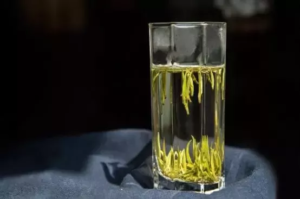Lincang tea production area is mainly concentrated in Cangyuan, Shuangjiang, Fengqing, Yunxian and other places, among which the world-renowned 10,000 mu of ancient tea community is located in Shuangjiang Mengku big snow mountain, big snow mountain is a very important tea production area, the famous Bingdao(冰岛) is located in the snow mountain.
Lincang is a very important tea producing area of pu-erh tea. It is one of the regions with the highest biodiversity in Yunnan province, and one of the regions with the largest representative stock of ancient tea tree heritage.
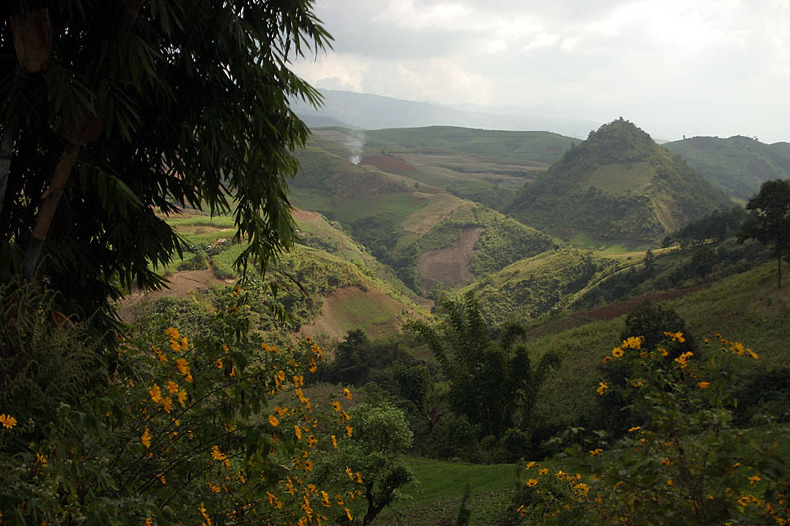
In Lincang, the most famous tea hilltop should belong to Mengku eighteen village, and Bingdao is truly supreme in the world of pu-erh tea. It seems to be incomparable and irreplaceable except for the old Banzhang.
Bingdao is a word in language spoken by Dai minority group, meaning a village stockaded with bamboo fence. Bingdao literally means “icy island” in English, and frankly is often mistaken as Iceland by people who are not familiar with pu-erh.
Nowadays Bingdao is an administrative village that governs 5 naturally formed villages – Bingdao Laozhai, Nanpo, Bawai, Nuowu and Dijie. A small river named Nanmeng runs through this region. Bawai and Nuowu locate on east-bank mountaintops and the other 3 sit on top of west-bank mountains. Difference in the plant orientation and soil components of mountains on both sides of Nanmeng River delivers distinct flavours of tea, even though they are just one river apart.
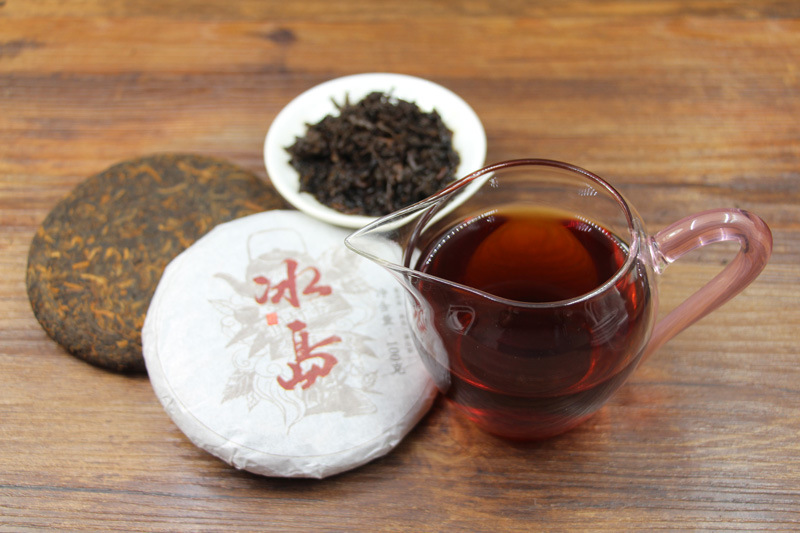
Bingdao is a place renowned in the Yunnan tea industry. Situated at 1400-2000 meters mountaintops, it is the one and only high altitude village occupied by Dai minority group in the Mengku town region.
Bingdao, which happens to be on the Tropic of Cancer, is said to come from “the place where the sun turns.” This provides an excellent objective growth environment for Bingdao tea. In addition, Bingdao village is high in altitude, shrouded in clouds all year round and humid climate, which makes tea trees flourish. The tea leaves are rich in various substances such as amino acids, soluble sugars and polyphenols.
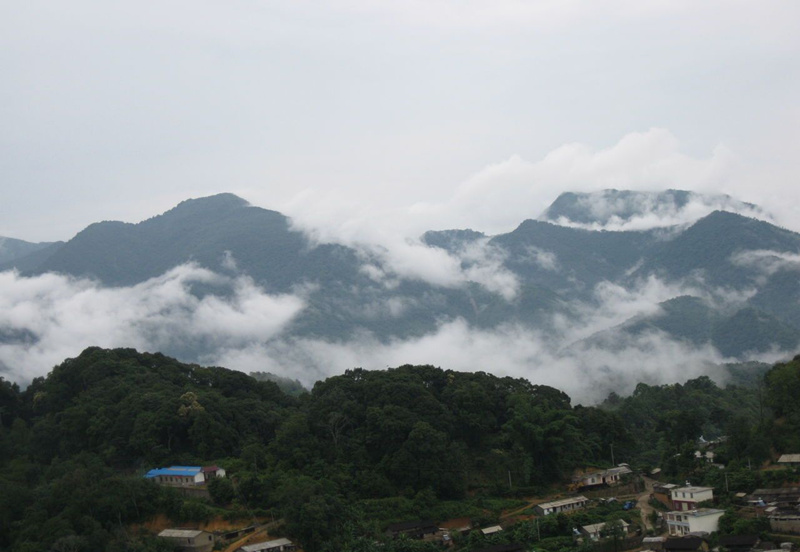
When Hantingfa(罕廷发) governed the Shuangjiang(双江) county in 1480, Bingdao already existed as a village. New county chief Hantingfa had the tea seeds brought back in 1485. The Dai people planted these tea seeds in Bingdao which establish the 500 year-old tea growing legacy.
Bingdao old village used to be the private tea garden for the chief’s family. According to Dai elders of Bingdao old village, no one was allowed to export Bingdao old village’s tea seeds without chief’s permission; violators were punished by imprisonment. Possessing this pu-erh was considered a prestige. Bingdao old village pu-erh was only shared among the higher ranks and was used as tribute and dowry to enhance relationships between the different tribes.
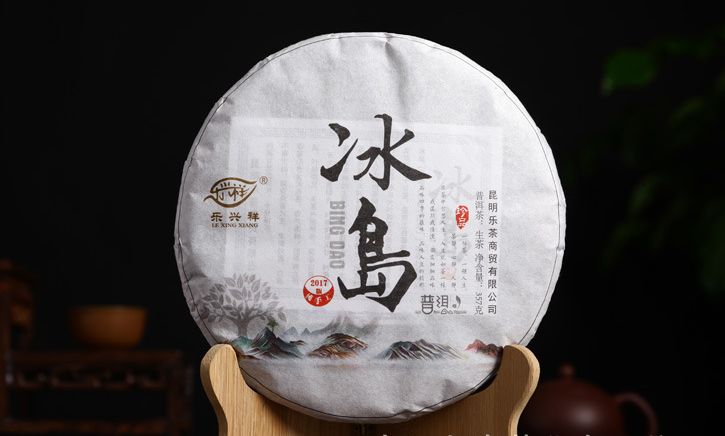
In 1760 (the 25th year of Qianlong era in Qing dynasty), Mengmeng’s chief united with Shunning’s chief by marrying his daughter to him. As part of his daughter’s grand dowry, several hundred kilograms of tea seeds from Bingdao old village were included. This was recorded in Mengmeng chief’s family archives. This book of family archives was written in ancient Dai language and stored in the Yunnan Provincial Archives.
The large-leaved arbor tea trees in Bingdao are characterized by their broad, thick and supple leaves. Bingdao pu-erh’s bitterness and astringency levels are extremely low and have honey-like flavour. Another unique characteristic of this tea is that it tastes even sweeter when cooled, while most others would taste bitter. Pu-erh from Bingdao old village is honoured as the “
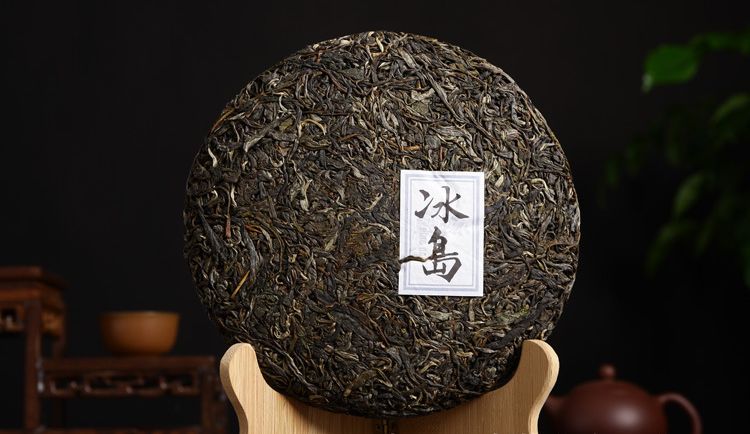
Every year, only a total of approximately 1000 kg of ancient tree pu-erh is produced from Bingdao. Due to its premium quality, rich history, high reputation and limited supply, pu-erh from Bingdao had always been highly sought after. Almost all of Bingdao pu-erh will be sold before the harvest even begins and you will be hard-pressed to find anyone willing to sell you pure, single estate pu-erh from there. This severe lack of supply and high profitability has created incentives for pu-erh from the other 4 nearby villages (Nanpo, Bawai, Nuowu and Dijie) or other tea mountains to be marketed as Bingdao pu-erh. It is not uncommon to see many Bingdaos in the market. Therefore, it is important to get this tea from reliable and trustworthy sources. It is considered a privilege to own genuine single estate Bingdao pu-erh, just like how wine collectors pride themselves on having a bottle of 1982 Château Lafite Rothschild.
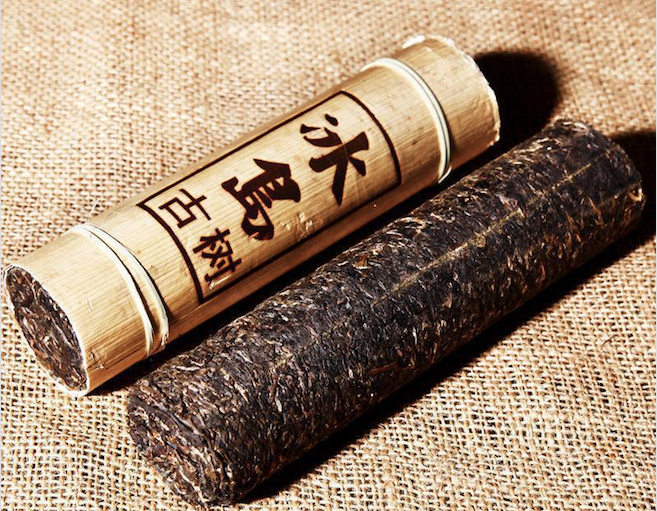
Purchase: Bing Dao-2019


